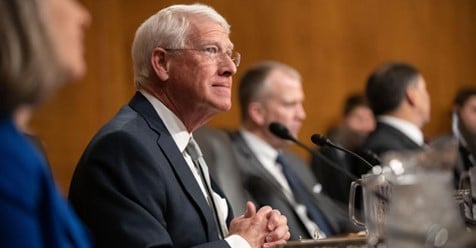The following article was written by U.S. Senator Roger Wicker:
Partisan Scare Tactics Are Baseless and Harmful
Presidential elections are often the subject of misinformation. Unfortunately, some of the most vocal proponents of the latest conspiracy theory are members and leaders of the United States Congress. This past week, a pair of House Democrats called on the FBI to investigate Postmaster General Louis DeJoy. Their allegation is that Mr. DeJoy is intentionally slowing down mail deliveries and undermining his own organization in an effort to affect mail ballots in the November election.
House Speaker Nancy Pelosi endorsed this unfounded claim by accusing the President of “manipulating the Postal Service to disenfranchise voters.” She has called the House back into session to “save the Postal Service” because “lives, livelihoods, and the life of our American Democracy are under threat from the President.” This theory has no basis in fact. Yet Speaker Pelosi’s words have ignited a media firestorm around the USPS, leading to unnecessary fears about the upcoming election.
Louis DeJoy’s Selection was Bipartisan and Unanimous
Mr. DeJoy was selected and approved unanimously by the Postal Service’s bipartisan board of governors, and he has carried out his duties in a non-partisan manner. In fact, many of his reforms are a continuation of efforts that began during the Obama Administration – long before the current debate over mail-in voting. The picture being painted of him is simply unfair.
Mr. DeJoy has taken criticism for overseeing the removal of old mail-sorting machines. Critics are saying this practice is part of a deliberate attempt to slow down election mail. In reality, the USPS has been offloading excess equipment for years because of decreased mail volume. It has also been looking to cut costs to reduce its nearly $107 billion debt.
Images of blue mail collection boxes being locked or removed have also gone viral on social media. However, most of these photos were taken years ago. For years, the Postal Service has regularly replaced or relocated drop boxes based on need. For example, more than 12,000 USPS drop boxes were removed from public spaces during the Obama Administration.
Mr. DeJoy was not the source of these policies. Nonetheless, he has announced that these reforms and service upgrades will be postponed until after the election “to avoid even the appearance of an impact on election mail.”
Postal Service has $15 Billion Surplus
Despite its massive debt, the Postal Service faces no immediate obstacles that would prevent it from handling an influx of election mail. The agency has a record $15 billion on hand, thanks in part to a surge in package mail and a federal relief loan. Mail volume is also down 14 percent this year. In testimony before the Senate Homeland Security Committee on Friday, Mr. DeJoy said he expects ballots to make up less than two percent of mail volume from mid-September to Election Day – hardly a burden for the Postal Service.
The key to ensuring the integrity of voting by mail is for states and voters to adhere to the timetables required for mailing ballots. The Postal Service recently cautioned that a number of states’ ballot deadlines do not line up with the Postal Service’s service standards. This means that if states do not adjust, some ballots could arrive at the ballot box late. Based on experience from some primaries this year, ballots mailed at the last minute may present a challenge for postal workers.
This election will be unusual for many reasons, but there is no reason to create fear. As long as states and voters meet the right deadlines, this election will be fair and reliable. It is wrong for elected leaders to push baseless conspiracy theories that undermine public trust in our elections.







